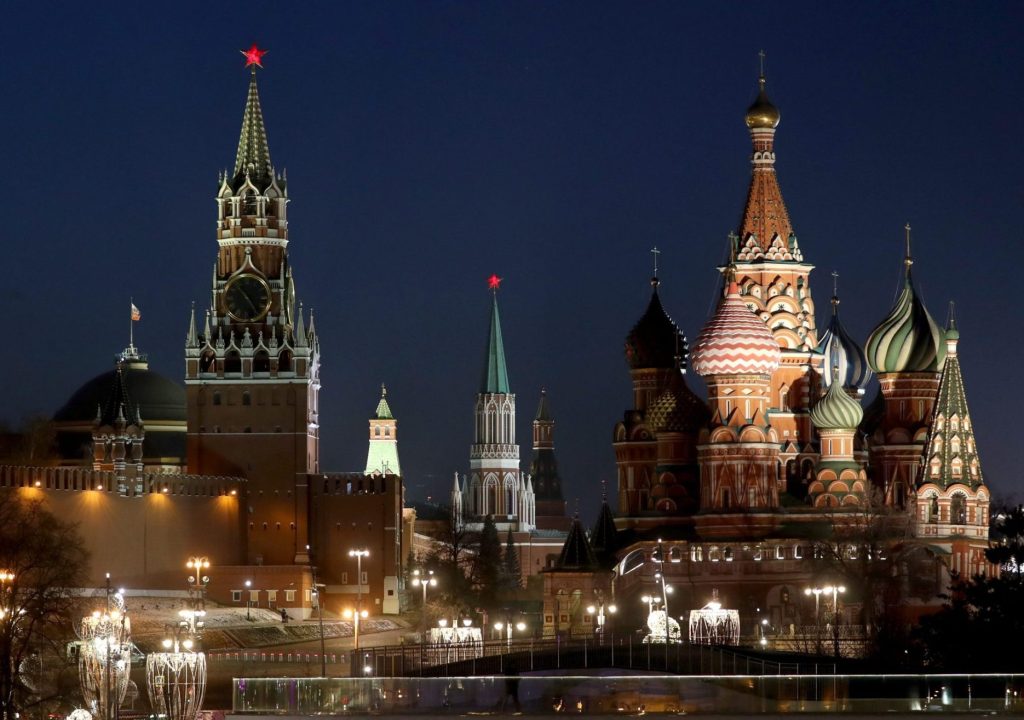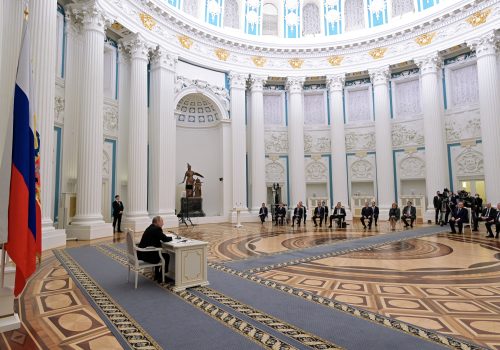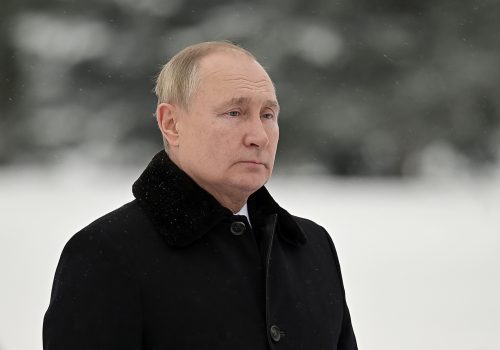Russia recognized eastern Ukraine’s so-called separatist republics as independent countries on February 21, dramatically raising the stakes in the confrontation initiated late last year by Vladimir Putin. The move is short of the full-scale invasion of Ukraine that the international community has feared, but still signifies a serious violation of international law and an end to the Minsk peace process, while leaving room for further escalation and creating possible pretexts for future Russian offensives.
Throughout this crisis, Western governments have repeatedly handed the initiative to Russia while threatening action in the event of further escalations. This needs to change. Going after the Kremlin’s oligarchs and elite who stash their illicit wealth in the West is an essential move that should happen now before Putin goes further in his campaign to end Ukrainian independence and revise Europe as we know it today.
For more than two decades, Vladimir Putin has ruled Russia through an authoritarian system designed to enrich himself and the wealthy oligarchs who enable him. Critically, this system has involved deep ties between Russian oligarchs and their businesses with Europe and the United States, both to stash their ill-gotten gains in places like London and New York and to lure former Western leaders into Moscow’s orbit.
For years, anti-kleptocracy experts like US Helsinki Commission adviser Paul Massaro have been calling for Western leaders to crack down. “Purging blood money and blocking oligarchs from our systems protects us from their malign influence,” Massaro told me.
Stay updated
As the world watches the Russian invasion of Ukraine unfold, UkraineAlert delivers the best Atlantic Council expert insight and analysis on Ukraine twice a week directly to your inbox.
On February 22, the US, UK, and EU announced a slew of sanctions in response to Russian recognition of the “separatist republics” in eastern Ukraine. The most impactful steps came from the US, which will target Russian sovereign debt, state banks, and the Kremlin elite. The UK announcement was sorely lacking, and Prime Minister Boris Johnson was roundly criticized by both the opposition and his own party for not going further.
It is a positive sign that the UK says it will sanction members of the Russian Duma and Federation Council who voted to recognize Ukraine’s “separatist republics,” but at the end of the day these lawmakers are just a rubber-stamp for Putin and his elite.
A major step that would give the next round of British sanctions some bite would be to follow through on statements Johnson has made before and “unpeel the façade” of Russian holdings in the UK. This would mean exposing beneficial ownership of shell companies, cracking down on kleptocrats stashing their assets abroad, and applying visa restrictions not just to the Kremlin elite but to their family members often sent abroad for education and vacations.
These wealthy businessman have for years used the openness of the West not only to launder assets they’ve plundered from the Russian people, but also to launder their own images and the Kremlin’s while advancing the Russian government’s interests.
This dark money is an active threat both to Western integrity and security. Whether Putin launches a new invasion of Ukraine or not in the coming weeks, authorities need to bring the fight to kleptocrats and purge their malign influence from Western systems. Democratic societies should be attractive around the world for a variety of reasons, but being easy marks for money laundering shouldn’t be one of them.
Eurasia Center events

The UK is already taking positive steps by scrapping the so-called “golden visa” that gives residency to rich investors and is used as a vehicle for oligarchs seeking access to the West. But as leaders across the British political spectrum pointed out, the next UK “barrage” of sanctions needs to go further.
Despite the Kremlin’s long-running propaganda that Russia is a country under siege by an aggressive and morally bankrupt West, Russia’s elite still park their assets in Western banks and send their families to Western capitals. They need co-opted Westerners to help advance their business and security interests. This is a hypocrisy worth spotlighting.
Enabling Russian elites despite the Kremlin’s aggressive policies at home and abroad has only encouraged further malfeasance. While not the sole cause, the broad failure to push back on the Kremlin and its agents for years in a variety of arenas, including this one, has brought the world to the brink of a catastrophic conflict.
Regardless of whether Russia manufactures a pretext for more war in Ukraine, Putin and his circle are clearly feeling emboldened. The US has already said that it will respond to the latest provocation with some sanctions to limit business ties with the occupied Donbas region in eastern Ukraine, but this doesn’t go nearly far enough. As the Russian parliament authorizes further deployments to Ukraine, Russian troops appear to be moving in.
At this moment of crisis, the international community can’t shy away from standing up to the Kremlin. Western governments need to live up to the values they have long proclaimed by cutting off Russian agents and oligarchs before it’s too late.
Doug Klain is an Assistant Director at the Atlantic Council’s Eurasia Center. Find him on Twitter @DougKlain.
Further reading
The views expressed in UkraineAlert are solely those of the authors and do not necessarily reflect the views of the Atlantic Council, its staff, or its supporters.

The Eurasia Center’s mission is to enhance transatlantic cooperation in promoting stability, democratic values and prosperity in Eurasia, from Eastern Europe and Turkey in the West to the Caucasus, Russia and Central Asia in the East.
Follow us on social media
and support our work
Image: A view of the Spasskaya Tower and St Basil's Cathedral at the Moscow Kremlin. (Stanislav Krasilnikov/TASS via REUTERS)




